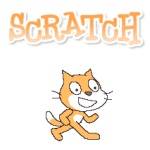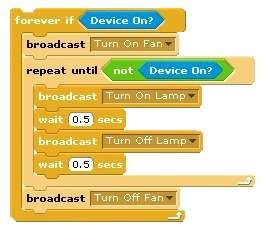Wish you could add a “clap on” and “clap off” option to more devices in your house? Want to be able to program your coffee pot to sound an alarm when it’s done brewing? A Rutgers University project aims to make those sorts of automations easy for anyone to add to their household appliances, with a little help the graphical programming language Scratch.

Scratch is often cited as one of the best introductory languages for teaching kids – or anyone, really – to code. So it’s no surprise that a Rutgers University honors class called “Programming for the Masses” would utilize Scratch as part of its goal of making programming a more accessible, everyday skill. What is unique – and if I may say so, pretty fun – is the direction that a research project, an outgrowth of the class, has taken since.
The project is called Scratchable Devices, and with it, computer science Professor Michael Littman and some of his students are working to make it easy for anyone to program their household devices by using Scratch.
Build Your Own Home Automation System
These devices use the BYOB (Build Your Own Blocks) offshoot of Scratch as the user interface. This way, the end-user can drag and drop blocks with commands instructing the device what to do (such as “turn on”), when or under what conditions. Ideally, people without any programming experience will be able to learn to program their devices by using this simple interface.

On the back-end, the programs that users write in Scratch are converted into radio transmissions received by the Scratchable Device. The devices are equipped with an XBee module connected to Arduino microcontrollers. The latter are programmed to read the messages and perform the necessary hardware actions.
The group has already built “Scratchable” lamps, alarm clocks, fans, and coffee makers, and they say they have more devices in the works.

















